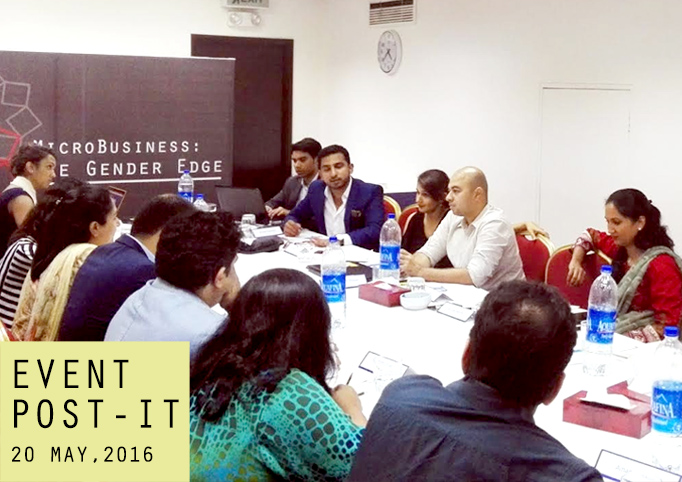Round Table
MicroBusiness: The Gender Edge
Date: May 20, 2016
On 20/05/16, Jinnah Institute held a policy roundtable in Karachi, titled “MicroBusiness: The Gender Edge”. Participants included business leaders, investors and academics, representing p@sha, SEED Ventures, Investors Lounge, ACUMEN Fund, Paimona Works, KITE, Engro Foundation, WomenX, WordPL, WonderTree and NayaJeevan, amongst others. Participants found that the entrepreneurship eco-system in Pakistan remains undeveloped with the government failing to acknowledge the potential of start-ups in generating economic growth in the country.
Among the issues identified at the roundtable were lack of access to finance, lack of access to markets, skills development, and an investment culture that remains dismissive of business start-up potential. Unlike in India, where startups enjoy tax exemptions for a period of three years, startups in Pakistan have high tax and non-development costs associated with their ventures as traditional financing is beyond the reach of small scale enterprises. Entrepreneurs from a range of sectors, including microfinance, skills development and technology enterprises said that there is no appreciation for social entrepreneurship at the policy level in Pakistan, nor a mechanism to determine the social impact of business ventures. Given the risks involved in pursuing a business venture, even high-potential projects fail to expand beyond a certain limit. As investments are only considered feasible if they have commercial returns, it is difficult for young entrepreneurs and women to secure financing for social enterprises and business models. While a large number of women in both urban and rural areas are associated with home based ventures, the absence of additional financing limits the scope of their businesses. Participants asserted that microfinance institutions can help plug this gap by relaxing collateral requirements, institutionalizing gender-sensitive regulations and ultimately making their products attuned with the financing needs of home-based business ventures.
It was also noted that entrepreneurial successes are not widely celebrated in traditional media. In many cases, individuals still seek the security of being in a job instead of investing their skills in a venture that has high financial risks associated with it. Participants also observed that the presence of a large skills and knowledge-based gap hampers entrepreneurial development despite a high supply of labor. The private sector can play an important role in bridging this gap by investing an innovative market oriented skills development program.
The policy dialogue concluded with a set of recommendations, stressing the need for a new definition for micro enterprises which differentiates them from larger firms and sets financial turnover and annual sales limits accordingly, so as to ensure they are not disadvantaged in competing for access to finances and markets.
Consequently, it is important to establish capital provisions which enable access to finances for entrepreneurs by simplifying the process to secure loans, and initiating tax exceptions for microbusinesses. Participants also noted that a lack of bankruptcy laws and a valuation policy directly hinder institutional growth, and should be explored when developing a focused policy for micro enterprises. Further, to ensure a sustainable platform for start-ups, skill building incentives should be introduced in education curriculum.
This policy roundtable was held under Jinnah Institute’s Open Democracy Initiative, as part of an ongoing series which examines policy-related freedoms and democratic entitlements in Pakistan.
Coverage: Pakistan Today

